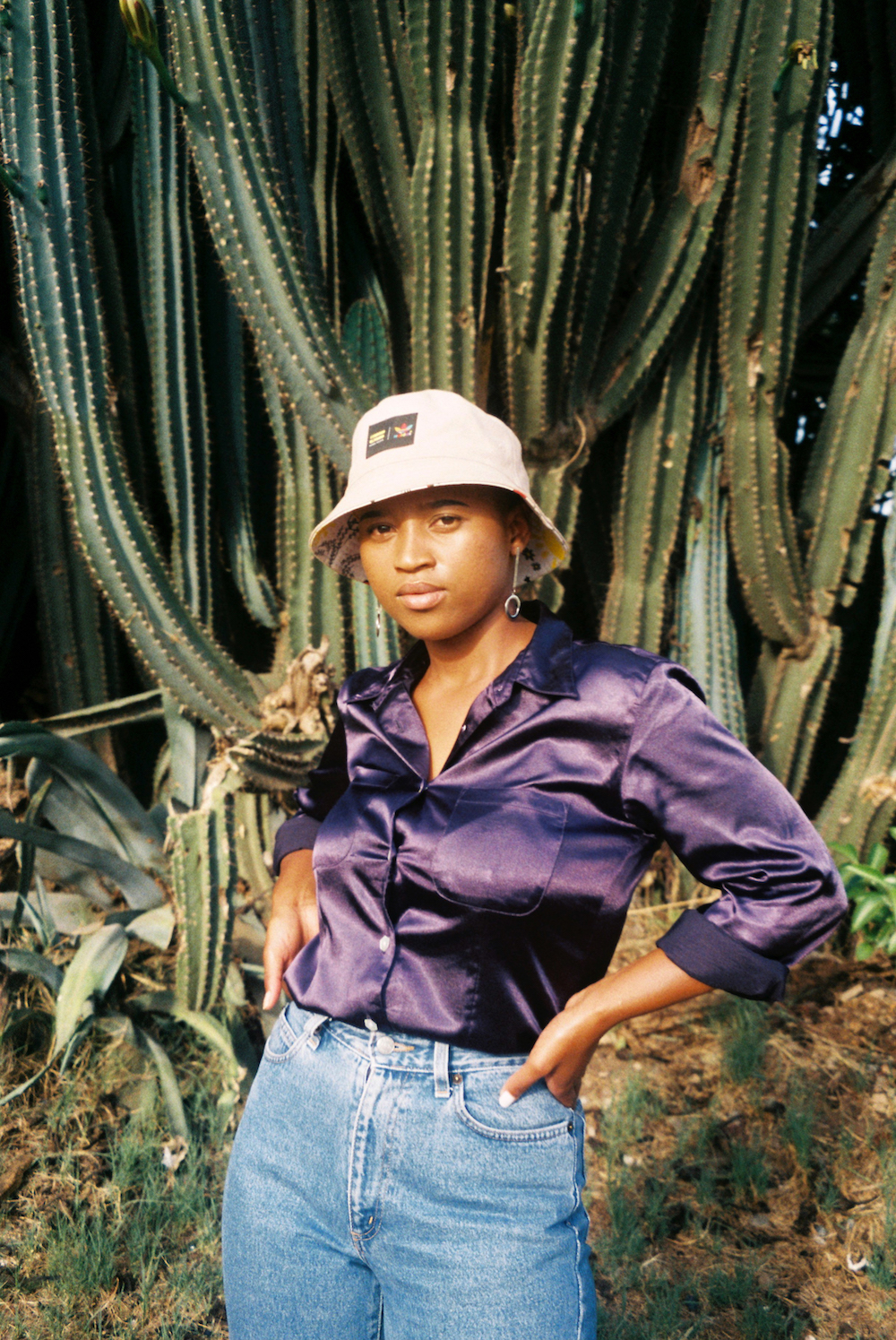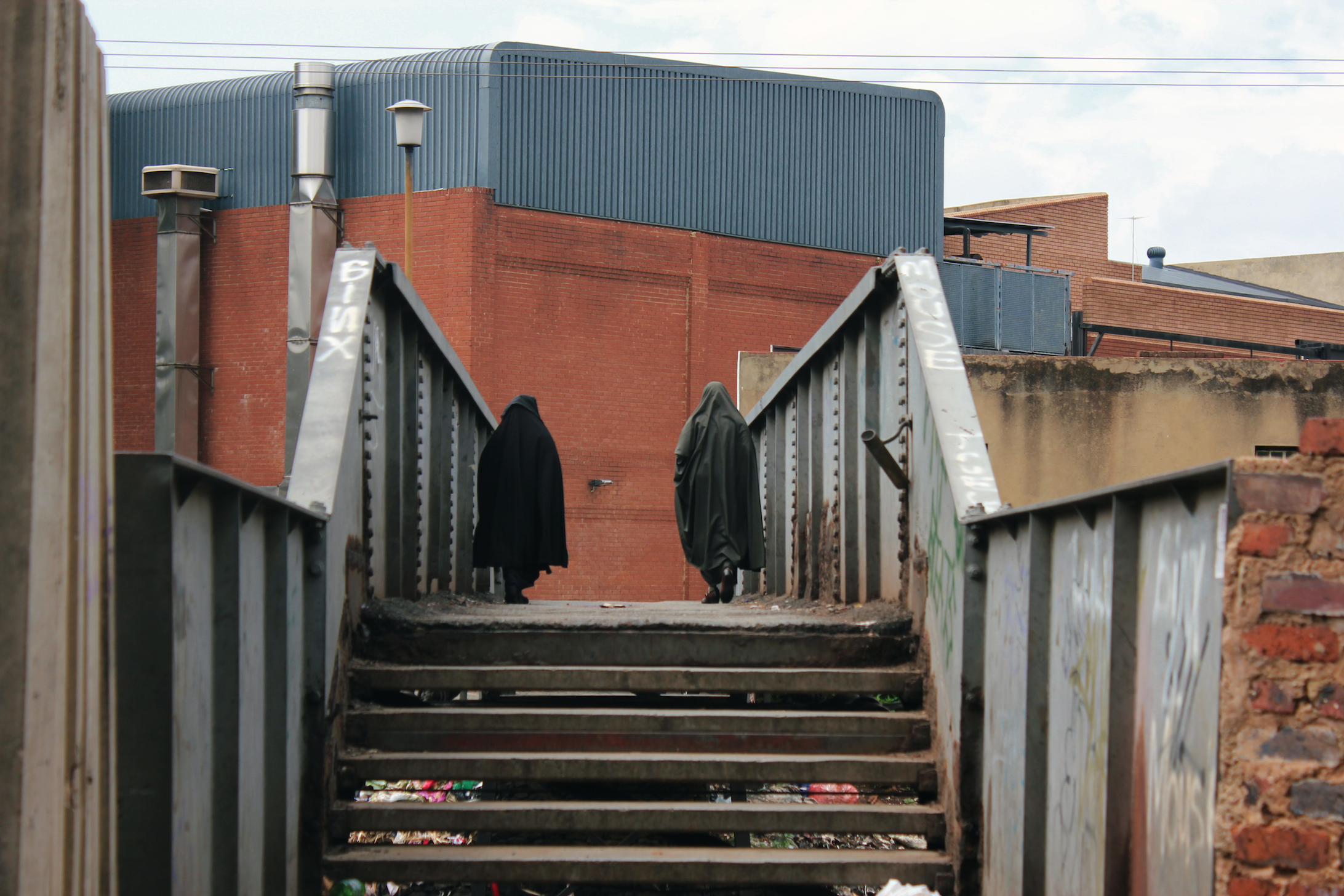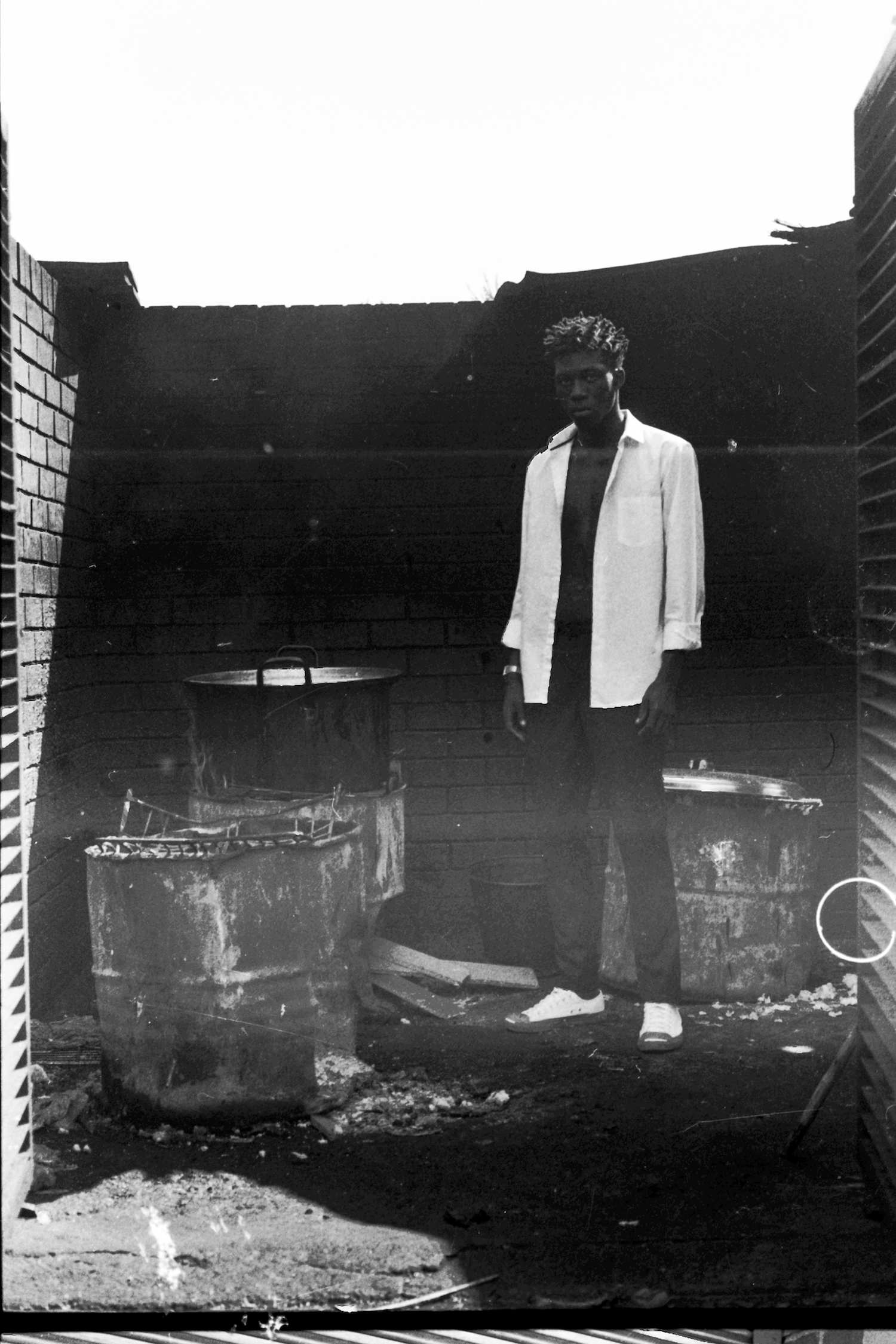Bambatha Jones known for having a variety of artistic inclinations regards himself as a photographer above all else. Growing up in Diepkloof, Soweto, he describes his childhood as quiet. “Diepkloof is commonly seen by those on the outside as a crime-heavy area, but for me it was a sweet respite from the bustling bodies of inner city Jozi and the dicey streets surrounding Jeppe High School for Boys where I boarded as a teenager.” He further explains that this contrast acted as a catalyst to his outward expressions of creative direction, photography and music.
Bambatha’s particular interest lies in the visual narration of black heritage as a means of not only showcasing but as an act of preservation. “I believe the reason why black people are still disadvantaged is because of the unstimulated township economy, we all still rely on the city centre to make a living which is counter productive considering that Soweto alone is the most populated area in South Africa. My artistic expression allows me to be vocal about my dissatisfaction towards the lack of reparations from European settlers in South Africa, but also questions what I’m doing in the present day to improve my life and leave a positive legacy amongst the black youth through my art.”

Photography made its way into Bambatha’s daily life towards the completion of his high school career. With a need to execute visual manifestations but with an inability to draw; he was compelled by the art of painting with light. “That frustration drove me to use my Blackberry Curve to photograph my friends, buildings and still life and edit them as if they were painted images. From then I realised the power of photography in media and programming at large, so I wanted to be responsible for the portrayal of South African culture.”
Leaning towards analogue depictions due to the intuitivism that is combined with the making process, 35mm is used for personal and experimental bodies of work. “It requires me to focus and be more decisive.” Digital, however, steps in when Bambatha works on test shoots or commercial projects. “Film pushes me to compose and think of the visual literacy behind the image in my mind before looking through my viewfinder.” He attributes the conversion from digital making to film, as a result of influence by Ren Hang. He elaborates that the late image maker was “message driven over quality, he mostly used various point and shoot analogue cameras but had a sharp sense of symmetry, composition and concept.” A shooting style based around the notion of performativity – as a model himself Bambatha is able to direct his models in an instinctual manner. Capturing what he calls “their curiosity to want to be remembered.”

Knowledge of self can only be unearthed when we look at the double self and speak to both parts of the self as described by the French psychoanalyst Jacques Lacan’s mirror stage theory. The self is both deferred and differed from itself. This is what Bambatha motions to – his work acts as motivation of the knowledge of self. Articulating what it is that he wants to share with his work he explains “My message is pro-black and not in a militant or malicious way. That way I also challenge myself to do more documentary photography. It in no way tries to undermine other cultures but motivates black people to empower themselves. The rainbow nation is an idealistic concept but statistics are realistic, black people are far behind economically and that’s why our culture is still commodified. My work seeks to provide both inspiration and information.”





















































